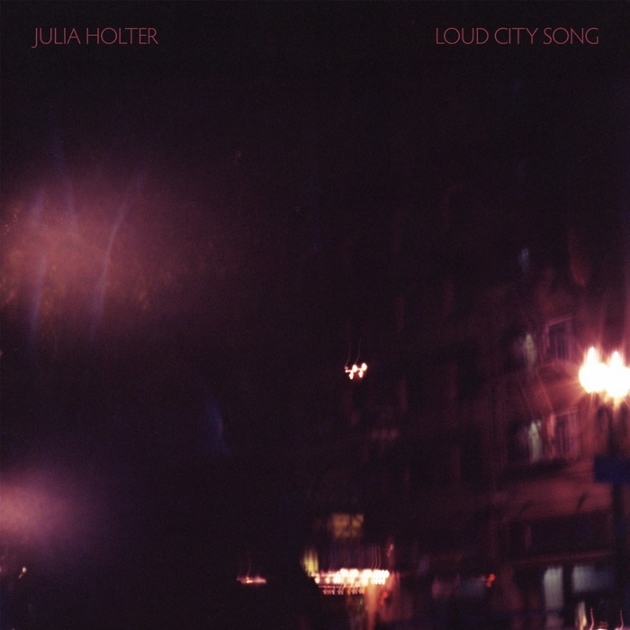Julia Holter has achieved quite a feat; Loud City Song is her third album, and all three of her albums have been released in consecutive years. Rather than each release seeming more rushed or predictable than the one prior, she’s managed to go the other way, with each subsequent album building upon the palette and originality set out by its predecessor. This can only be attributed to Holter’s talent and commitment to her music. Indeed, the complexity and stateliness of the music itself is matched by the concepts and influences that manifest themselves in her lyrics; some people might be put off by thinking that they need a degree in classic literature or Greek philosophy to get the full impact of Holter’s words, but on Loud City Song the broad and exquisitely-used instrumentation brings the songs and words to life on their own merits, without any prior knowledge of their origins necessary.
Take, for example “Maxim’s I,” which is a reference to a French novella from the 1940s, but you need not necessarily know this as the fountain-like fanfare of waltzing organ, piano and wavering violins, combined with Holter’s bobbing and graceful vocals take you perfectly into this rich scene on their own, complete with ghostly dancers in grand dresses moving around a ballroom as champagne is supped and laughter fills the air. On album closer “City Appearing” she once again takes you into a city scene from a former life, this one frosty, cold and uninhabited as she begins with just her voice, extremely spare piano and slowly coalescing strings, which make you feel like a thought on a breeze blowing in and out of quiet alleyways just before dawn, before eventually lifting you way up above the buildings to watch the sunrise over the cityscape.
This magical quality of sucking you into the songs is consistent throughout Loud City Song. “Horns Surrounding Me” sounds like exactly that, Holter’s voice trapped inside walls of brazen brass that rises up around it both majestically and tormentingly, and when then combined with the thudding bass drum beat, unearthly organ and Holter’s most forceful vocal performance on the album it becomes its most anthemic point. We feel her striving to escape the real world, only to find her stuck inside her own mind. “In The Green Wild” is another tale of escape, starting with a scampering upright bassline that charts the protagonist’s flight as she proclaims “Am I too bored to understand? Well good I’m done; off to the wild for me.” We follow her down the rabbit hole with this continuing hypnotic upright bass as she sings “there’s a flavour to the sound of walking no one’s ever noticed before,” and we understand exactly what she’s talking about as we’re completely and helplessly in tune with her by this point. The second half of the song embellishes on this Alice In Wonderland aura as she sings on the pseudo-hook “there’s a humour in the way they walk, even a flower walks,” and you can see the woodland coming to life all around you as you listen.
The album’s centerpiece happens to be a cover of Barbara Lewis’ “Hello Stranger,” but Holter has made it entirely her own on this version. This six and a half minute rendition takes you right into the scene of the lovers’ reunion; with the sounds of gulls cawing overhead and the slowed down vocal line, it can only be at the seaside in front of a golden sunset. The rich and floating strings take you in to feel their embrace, decelerated infinitely as their bodies and souls melt into each other in a moment that they’ll never forget – and neither will the listener.
Loud City Song is a true achievement from Julia Holter. Nary is there a hook on the album, but the richness and vividness that she brings to the songs musically and lyrically will hook you more effectively anyway. To consider that this album was created by a single mind is astounding, and that she did it barely more than a year after her last great album seems like a minor miracle.


